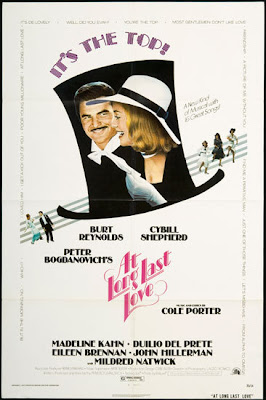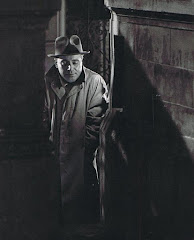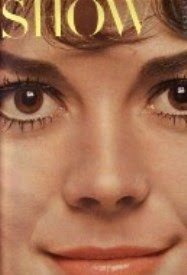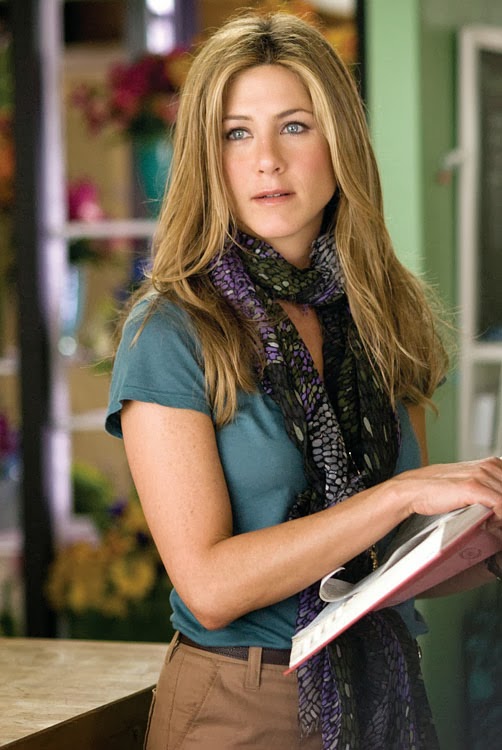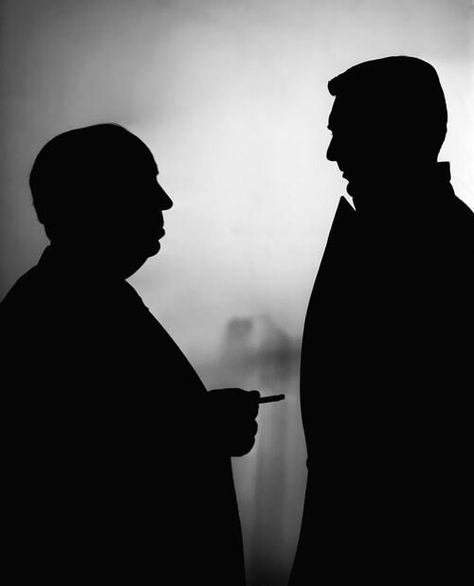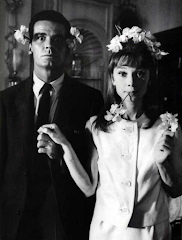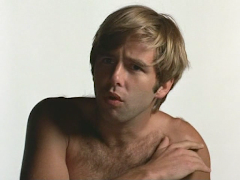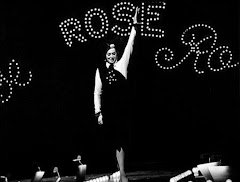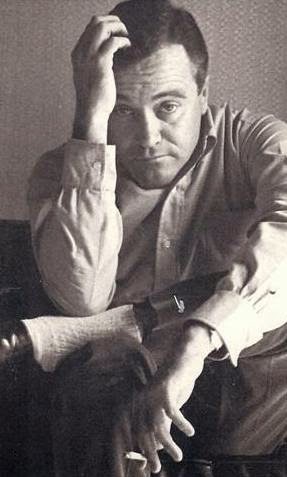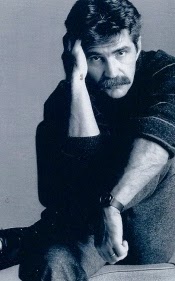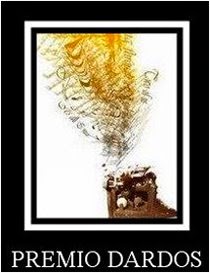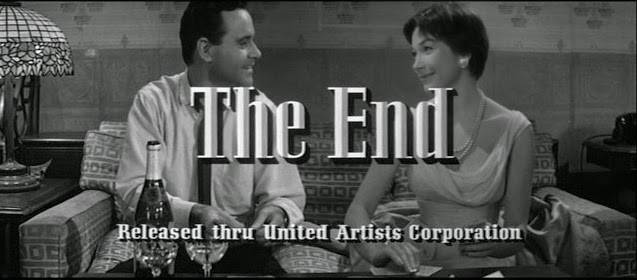a series of essays devoted to Peter Bogdanovich's fabulous 1975 film musical, "At Long Last Love."
"Joe's pieces are amazing"
* * *
Note: These essays were originally published here separately from April 3rd to 9th, 2011. "At Long Last Love," long lost in terms of home entertainment, has recently become available on BluRay, in a new version edited by the late James Blakely of Fox Editorial. Hence, this encore presentation.
PART ONE
"Joe's pieces are amazing"
~Peter Bogdanovich
* * *
Note: These essays were originally published here separately from April 3rd to 9th, 2011. "At Long Last Love," long lost in terms of home entertainment, has recently become available on BluRay, in a new version edited by the late James Blakely of Fox Editorial. Hence, this encore presentation.
PART ONE
During an interview, Billy Wilder said to me, "All my movies are my children. I love them all." Not all films are so lucky.
Case in point: "At Long Last Love," a film that was hastily dismissed by critics in 1975, ignored by the moviegoing public and seemingly abandoned by 20th Century-Fox, the studio that produced and released it.
The movie, now more than 35 years old, has never been released on home entertainment in any format whatsoever - not Beta, not VHS, not LaserDisc, not DVD, certainly not Blu-Ray. Yet Fox has found the wherewithal to release something like, say, "Beyond the Poseidon Adventure" - and other titles far worse - to home entertainment.
And until just recently, "At Long Last Love" has not been telecast or shown in retrospective houses. (Check out my postscript below.)
But perhaps most telling, in a candid moment during an interview conducted last winter by Adam Hulin (who co-programs with Matt Pennachi the fine Cinema Overdrive screening series in North Carolina), its maker Peter Bogdanovich flatly stated, "I don't love it ... because it’s too painful," thereby sealing his movie's fate.
Frankly, that's not reason enough, Peter, given that "At Long Last Love" was originally, obviously, a labor of love. One can excuse the public, which essentially does what it's told to do, as well as Fox which, like any studio worth its salt, is interested in the bottom line and in looking good. And, well, a failed film does not look very good.
Yeah, one can excuse the public and the studio, but the critics, who seemed to be reacting more to Bogdanovich's relationship with his star, Cybill Shepherd, than to the film itself, should have known better. They came to the film with a disapproving gaze (or rather, in this particular case, a non-gaze) and it was exactly what they had hoped it would be.
As for Peter's decision to disavow his own film, I'll comment on that in a subsequent post. Besides, this post - or, rather, series of posts - is not about Peter Bogdanovich. It's about his lost masterwork, "At Long Last Love," the very film that compelled me to pursue this site and dedicate it to movies misunderstood, lost, forgotten and generally neglected. But in the case of ALLL, neglected no more. Herein is an eight-part series on Peter's unwanted child. Enjoy!
Note in Passing: Wait! Wait a minute. Recently, after years of being dormant, ALLL has suddenly reappeared and, with it, an apparant resurgence of interest. It has been streaming on Netflix; it was screened at the Anthology Film Archive in June as part of its '70s movie musicals retrospective, and it now shows up with some regularity on the Fox Movie Channel, with more screenings scheduled for today and August and September 10 & 22. It's worth discovering/reevaluating. Now, read on...
Case in point: "At Long Last Love," a film that was hastily dismissed by critics in 1975, ignored by the moviegoing public and seemingly abandoned by 20th Century-Fox, the studio that produced and released it.
The movie, now more than 35 years old, has never been released on home entertainment in any format whatsoever - not Beta, not VHS, not LaserDisc, not DVD, certainly not Blu-Ray. Yet Fox has found the wherewithal to release something like, say, "Beyond the Poseidon Adventure" - and other titles far worse - to home entertainment.
And until just recently, "At Long Last Love" has not been telecast or shown in retrospective houses. (Check out my postscript below.)
But perhaps most telling, in a candid moment during an interview conducted last winter by Adam Hulin (who co-programs with Matt Pennachi the fine Cinema Overdrive screening series in North Carolina), its maker Peter Bogdanovich flatly stated, "I don't love it ... because it’s too painful," thereby sealing his movie's fate.
Frankly, that's not reason enough, Peter, given that "At Long Last Love" was originally, obviously, a labor of love. One can excuse the public, which essentially does what it's told to do, as well as Fox which, like any studio worth its salt, is interested in the bottom line and in looking good. And, well, a failed film does not look very good.
Yeah, one can excuse the public and the studio, but the critics, who seemed to be reacting more to Bogdanovich's relationship with his star, Cybill Shepherd, than to the film itself, should have known better. They came to the film with a disapproving gaze (or rather, in this particular case, a non-gaze) and it was exactly what they had hoped it would be.
As for Peter's decision to disavow his own film, I'll comment on that in a subsequent post. Besides, this post - or, rather, series of posts - is not about Peter Bogdanovich. It's about his lost masterwork, "At Long Last Love," the very film that compelled me to pursue this site and dedicate it to movies misunderstood, lost, forgotten and generally neglected. But in the case of ALLL, neglected no more. Herein is an eight-part series on Peter's unwanted child. Enjoy!
Note in Passing: Wait! Wait a minute. Recently, after years of being dormant, ALLL has suddenly reappeared and, with it, an apparant resurgence of interest. It has been streaming on Netflix; it was screened at the Anthology Film Archive in June as part of its '70s movie musicals retrospective, and it now shows up with some regularity on the Fox Movie Channel, with more screenings scheduled for today and August and September 10 & 22. It's worth discovering/reevaluating. Now, read on...
Next Up- My anaylsis of the film
 Bogdanovich directs Shepherd and Del Prete in the "You're the Top" number from "At Long Last Love"
Bogdanovich directs Shepherd and Del Prete in the "You're the Top" number from "At Long Last Love"* * *
PART TWO
With its elegantly schematic storyline, Peter Bogdanovich's "At Long Last Love" works on a dual-level as both heartfelt hommage and light spoof, lovingly appropriating, as my friend and colleague Carrie Rickey
so aptly puts it, "the feel of early Mamoulian or Lubitsch."The film has insouciance to spare and is tinged with a haunting air of melancholy.
Originally graced with 21 songs by Cole Porter (eventually scaled back to 16, thanks to a series of visits to the editing room), the 1975 release tells the unrushed story of a rondelay - four people who pair up and break up over the course of what seems to be a long weekend, only to regroup in yet another uncertain variation.

Burt Reynolds is spot on as Michael Oliver Pritchard III, a wealthy playboy suffering from bad case of ennui; Cybill Shepherd is the languid, petulant heiress-on-the-skids Brooke Carter; Duilio Del Prete fractures English as Johnny Spanish, a dashing, devil-may-care Venetian gambler, and Madeline Kahn entertains as brassy showgirl Kitty O'Kelly, who's unlucky in love, natch.
On the sidelines is another uneasy couple - John Hillerman as Rodney James, Pritchard's very proper manservant, and Eileen Brennan as Elizabeth, Brooke's sassy, hard-nosed maid. And Mildred Natwick pops in as Mabel, Pritchard's mother, understandably confused about her son's love life.
Bogdanovich handles these amusing denizens and the luxe material that encircles them with easy aplomb, bringing sly wit, a cinéphile's eye and panache to his breezy, fluffy storytelling.

In 1975, Bogdanovich was a young director of great reach, a budding auteur willing to try anything. And, here, he reached rare artistic heights with his rather perilous decisions to (1) have all the film's songs sung "live" (rather than pre-record them); (2) have his cast largely improvise their dance steps (with some help from dance coordinators Rita Abrams and Albert Lantieri), bits that are done with the scratch-pad casualness of those carefree, in-between numbers in the Astaire-Rogers musicals, and (3) style his film with black and white costumes and set decorations exclusively (after Fox vetoed his plans to shoot in black-&-white). Cinematographer László Kovács certainly shares in Bogdanovich's triumph here.
"At Long Last Love" was something of a filmic preëmptive strike in its day, not surprising given that Bogdanovich was young, ambitious and brash (some might say arrogant). Remember, this was the same year when Steven Speilberg's "Jaws" changed everything in film. And here was a movie musical, a genre considered resolutely old-fashioned. The fact that Bogdanovich purposely kept his film "old-fashioned" is something that most people simply didn't get.
That said, "At Long Last Love" is lovely, loving, engaging and fun, and its only true failing is its maker's audacity.
Perhaps it' simply too good for audiences, then and now. I've a hunch, however, that Mamoulian and Lubitsch would have loved it.
Next up- The criticism

One of the built-in problems with criticism is that when reviewers like a film, they go back and see it again and again, studying it and elevating it even further in their minds.
This doesn't happen with a film that they revile or receive negatively. They move on and the awfulness of the film in question remains burned in their minds.
And, frankly, when the buzz is bad, watching a film with an open mind can be difficult – akin to trying to see the screen at the end of a lo-n-ng corridor where there are all kinds of wires and other paraphrenalia obstructing the view.
I can say this with some authority and certainty, having been a critic way longer than it's healthy to be.
Alfred Hitchcock's "Vertigo" is that rare exception of a film that was hastily dismissed by the critics in its day but that has been reevaluated, its standing adjusted upward. This James Stewart-Kim Novak fever dream has managed to survive its critically beatings in 1958 to become a "masterpiece." Richard Quine's "Bell, Book and Candle," another Stewart/Novak film from the same year, has also grown in stature after being initially written off.
In the case of "At Long Last Love," the critics saw it, disliked it and moved on, putting it out of their minds. I recall the critics complaining about the film but without ever really verbalizing exactly what it was they didn't like about it. (Not surprisingly, most of the negativity that continues to surround the film seems to come from people who haven't even seen it. This is not uncommon. Still, opinions based on hearsay or assumptions are ... worthless.)

Incidentally, one of the easier, more common slams against the film by its critics was that its cast couldn't sing, which is just not true. Everyone in the film can carry a tune; no one hits a sour note. And I admire their definace in the aftermath: Cybill Shepherd, for one, went on to do a well-regarded jazz album with Stan Getz, titled "mad about the boy." (Prior to the film, she had recorded an album of Porter songs titled "Cybill Shepherd Does It ... to Cole Porter.")
And Reynolds, unfazed, went on to sing in Colin Higgins' "The Best Little Whorehouse in Texas." (Reynolds - whose singing voice, to my untrained ears, goes down easy in the style of Dean Martin's - also recorded an album, "Ask Me What I Am.")
Prior to doing "At Long Last Love," Mildred Natwick headlined the 1971 Kander-Ebb stage musical, "70, Girls, 70," about larcenous old-timers, which was based on the 1959 British play by Peter Coke, "Breath of Spring," which also became Robert Asher's 1960 film, "Make Mine Mink."
And Kahn and Del Prete both had musical backgrounds.
Note in Passing: If my memory serves me correctly, when Peter was planning ALLL, he had a different cast in mind, with the exception of Cybill Shepherd, who was always part of the plan; actually, Peter has credited her with initiating the film. However, the roles eventually played by Burt Reynolds, Madeline Kahn and Duilio Del Prete, were once envisioned with Ryan O'Neal, Barbra Streisand and Elliott Gould, respectively. I remember those names having been bandied about during pre-production, although I can't vouch for the veracity of the reports where I read them.
This doesn't happen with a film that they revile or receive negatively. They move on and the awfulness of the film in question remains burned in their minds.
And, frankly, when the buzz is bad, watching a film with an open mind can be difficult – akin to trying to see the screen at the end of a lo-n-ng corridor where there are all kinds of wires and other paraphrenalia obstructing the view.
I can say this with some authority and certainty, having been a critic way longer than it's healthy to be.
Alfred Hitchcock's "Vertigo" is that rare exception of a film that was hastily dismissed by the critics in its day but that has been reevaluated, its standing adjusted upward. This James Stewart-Kim Novak fever dream has managed to survive its critically beatings in 1958 to become a "masterpiece." Richard Quine's "Bell, Book and Candle," another Stewart/Novak film from the same year, has also grown in stature after being initially written off.

In the case of "At Long Last Love," the critics saw it, disliked it and moved on, putting it out of their minds. I recall the critics complaining about the film but without ever really verbalizing exactly what it was they didn't like about it. (Not surprisingly, most of the negativity that continues to surround the film seems to come from people who haven't even seen it. This is not uncommon. Still, opinions based on hearsay or assumptions are ... worthless.)

Incidentally, one of the easier, more common slams against the film by its critics was that its cast couldn't sing, which is just not true. Everyone in the film can carry a tune; no one hits a sour note. And I admire their definace in the aftermath: Cybill Shepherd, for one, went on to do a well-regarded jazz album with Stan Getz, titled "mad about the boy." (Prior to the film, she had recorded an album of Porter songs titled "Cybill Shepherd Does It ... to Cole Porter.")
And Reynolds, unfazed, went on to sing in Colin Higgins' "The Best Little Whorehouse in Texas." (Reynolds - whose singing voice, to my untrained ears, goes down easy in the style of Dean Martin's - also recorded an album, "Ask Me What I Am.")
Prior to doing "At Long Last Love," Mildred Natwick headlined the 1971 Kander-Ebb stage musical, "70, Girls, 70," about larcenous old-timers, which was based on the 1959 British play by Peter Coke, "Breath of Spring," which also became Robert Asher's 1960 film, "Make Mine Mink."
And Kahn and Del Prete both had musical backgrounds.
Note in Passing: If my memory serves me correctly, when Peter was planning ALLL, he had a different cast in mind, with the exception of Cybill Shepherd, who was always part of the plan; actually, Peter has credited her with initiating the film. However, the roles eventually played by Burt Reynolds, Madeline Kahn and Duilio Del Prete, were once envisioned with Ryan O'Neal, Barbra Streisand and Elliott Gould, respectively. I remember those names having been bandied about during pre-production, although I can't vouch for the veracity of the reports where I read them.
Next Up- The songs


The Songs
(I'll annotate those songs that were edited out/restored)
Music and Lyrics by Cole Porter
Music supervised and conducted by Lionel Newman and Artie Butler
Orchestrations by Gus Levene
(I'll annotate those songs that were edited out/restored)
Music and Lyrics by Cole Porter
Music supervised and conducted by Lionel Newman and Artie Butler
Orchestrations by Gus Levene
Overture
-A medley of “At Long Last Love,” “You’re the Top,” “I Get a Kick Out of You,” “It’s De-Lovely” and “Just One of Those Things”
1. “Down in the Depths on the 90th Floor” – sung by Madeline Kahn
(This number was cut prior to theatrical release; reinstated in 16mm and TV prints and restored 35mm prints)
2. “Tomorrow” – sung by Duilio Del Prete
(cut prior to theatrical release; reinstated in 16mm and TV prints and restored 35mm prints)
3. “Which” – sung by Cybill Shepherd
(subsequently shortened during first-run engagements)
4. “Poor Young Millionaire” – sung by Burt Reynolds
5. “Etiquette” – sung by Eileen Brennan and Shepherd
(cut prior to theatrical release; reinstated in 16mm prints; deleted from TV prints)
6. “You’re the Top” – sung by Reynolds, Kahn, Shepherd and Del Prete
7. “Find Me a Primitive Man” – sung by Kahn
8. “Friendship” – sung by Shepherd, Kahn, Reynolds and Del Prete
9. “Friendship” (reprise) – sung by John Hillerman, Brennan, Shepherd, Kahn, Reynolds and Del Prete
10. “But in the Morning, No” – sung by Brennan and Hillerman
11. “At Long Last Love” – sung by Kahn, Reynolds, Shepherd and Del Prete
12. “Kate the Great” – sung by Mildred Natwick and company
(cut prior to theatrical release; never reinstated)
13. “Well, Did You Evah?” - sung by Reynolds, Shepherd, Del Prete, Kahn and Natwick
14. Centerpiece Medley:
“From Alpha to Omega” – sung by Del Prete and Kahn
“But in the Morning, No” – sung by Hillerman and Brennan
(cut prior to theatrical release; never reinstated)
“Let’s Misbehave”/ “It’s Delovely” – sung by Shepherd and Reynolds
“From Alpha to Omega” – sung by Del Prete and Kahn
(cut prior to theatrical release; never reinstated)
“It’s Delovely” - sung by Shepherd and Reynolds
(cut prior to theatrical release; never reinstated)
“From Alpha to Omega” (soft-shoe version) – sung by Del Prete and Kahn
(cut prior to theatrical release; reinstated in 16mm prints; deleted from TV prints)
“It’s Delovely” - sung by Shepherd and Reynolds
“But in the Morning, No” – sung by Hillerman and Brennan
“From Alpha to Omega” – sung by Del Prete and Kahn
(cut prior to theatrical release; never reinstated)
“It’s Delovely”/”Let’s Misbehave” - sung by Shepherd and Reynolds
15. “Just One of Those Things” – sung by Reynolds, Shepherd and Del Prete
16. “Goodbye, Little Dream, Goodbye” – sung by Kahn
(cut prior to theatrical release; never reinstated)
17. “I Get a Kick Out of You” – sung by Shepherd
18. “Most Gentlemen Don’t Like Love” – sung by Brennan, Kahn and Shepherd
19. “I Loved Him (but He Didn't Love Me)” – sung by Kahn and Shepherd
(cut during first run; subsequently reinstated)
20. Finale: “A Picture of Me Without You” – sung by Reynolds, Shepherd, Del Prete and Kahn
End Titles
-A medley of “You’re the Top,” “I Get a Kick Out of You” and “Just One of Those Things”
(This medley was deleted for certain versions of the film; the end credits were played mute)
-A medley of “At Long Last Love,” “You’re the Top,” “I Get a Kick Out of You,” “It’s De-Lovely” and “Just One of Those Things”
1. “Down in the Depths on the 90th Floor” – sung by Madeline Kahn
(This number was cut prior to theatrical release; reinstated in 16mm and TV prints and restored 35mm prints)
2. “Tomorrow” – sung by Duilio Del Prete
(cut prior to theatrical release; reinstated in 16mm and TV prints and restored 35mm prints)
3. “Which” – sung by Cybill Shepherd
(subsequently shortened during first-run engagements)
4. “Poor Young Millionaire” – sung by Burt Reynolds
5. “Etiquette” – sung by Eileen Brennan and Shepherd
(cut prior to theatrical release; reinstated in 16mm prints; deleted from TV prints)
6. “You’re the Top” – sung by Reynolds, Kahn, Shepherd and Del Prete
7. “Find Me a Primitive Man” – sung by Kahn
8. “Friendship” – sung by Shepherd, Kahn, Reynolds and Del Prete
9. “Friendship” (reprise) – sung by John Hillerman, Brennan, Shepherd, Kahn, Reynolds and Del Prete
10. “But in the Morning, No” – sung by Brennan and Hillerman
11. “At Long Last Love” – sung by Kahn, Reynolds, Shepherd and Del Prete
12. “Kate the Great” – sung by Mildred Natwick and company
(cut prior to theatrical release; never reinstated)
13. “Well, Did You Evah?” - sung by Reynolds, Shepherd, Del Prete, Kahn and Natwick
14. Centerpiece Medley:
“From Alpha to Omega” – sung by Del Prete and Kahn
“But in the Morning, No” – sung by Hillerman and Brennan
(cut prior to theatrical release; never reinstated)
“Let’s Misbehave”/ “It’s Delovely” – sung by Shepherd and Reynolds
“From Alpha to Omega” – sung by Del Prete and Kahn
(cut prior to theatrical release; never reinstated)
“It’s Delovely” - sung by Shepherd and Reynolds
(cut prior to theatrical release; never reinstated)
“From Alpha to Omega” (soft-shoe version) – sung by Del Prete and Kahn
(cut prior to theatrical release; reinstated in 16mm prints; deleted from TV prints)
“It’s Delovely” - sung by Shepherd and Reynolds
“But in the Morning, No” – sung by Hillerman and Brennan
“From Alpha to Omega” – sung by Del Prete and Kahn
(cut prior to theatrical release; never reinstated)
“It’s Delovely”/”Let’s Misbehave” - sung by Shepherd and Reynolds
15. “Just One of Those Things” – sung by Reynolds, Shepherd and Del Prete
16. “Goodbye, Little Dream, Goodbye” – sung by Kahn
(cut prior to theatrical release; never reinstated)
17. “I Get a Kick Out of You” – sung by Shepherd
18. “Most Gentlemen Don’t Like Love” – sung by Brennan, Kahn and Shepherd
19. “I Loved Him (but He Didn't Love Me)” – sung by Kahn and Shepherd
(cut during first run; subsequently reinstated)
20. Finale: “A Picture of Me Without You” – sung by Reynolds, Shepherd, Del Prete and Kahn
End Titles
-A medley of “You’re the Top,” “I Get a Kick Out of You” and “Just One of Those Things”
(This medley was deleted for certain versions of the film; the end credits were played mute)
"Down in the Depths on the 90th Floor"

Del Prete, Kahn, Reynolds and Shepherd performing in the "Friendship" number
Next Up- The different versions of ALLL
A Work in Progress
Or, The Eight Different Versions of "At Long Last Love"
Initially, Bogdanovich couldn't be demoralized by the response to ALLL. Like a champ, he continued to work on it, and with some passion, long after its release. Finally, he gave up and the film disappeared.
For decades.
Much of the various editing sessions that the film endured involved the musical numbers. No surprise here. For some bizarre reason, songs are usually the first things to go when a musical has to be shortened. No surprise also because ALLL started out with 21 songs in its script.
Each of the four main characters had an introductory song when the film was previewed. By the time the film opened, the first two songs - those for Kahn and Del Prete - were eliminated. Bad move. The release version opened with Shepherd's song which, given how critics felt about the actress at the time, made a bad - very bad - first impression.
Lost was Madeline Kahn's sublime reading of "Down in the Depths on the 90th Floor," a smashing way to open the film.
But its greatest loss during the editing process was the abridgement of the ambitious centerpiece medley, which breathlessly alternates among the three couples in the film, each of them with a signature song.
And at one point, the bouncy exit music, played over the end credits, was deleted and played with no sound, an eerie, funereal effect: The film doesn't so much end - now, it literally dies.
By my count, there are at least eight different cuts of "At Long Last Love" out there. What follows is a listing of the different versions and their content...
1. Preview Versions (previewed twice)
- Presumably the most complete versions.
2. Release Version
- The opening songs, “Down in the Depths on the 90th Floor” and “Tomorrow,” were eliminated, along with “Etiquette,” “Kate the Great,” “Goodbye, Little Dream, Goodbye” and most of the aforementioned centerpiece medley.
3. Re-edit Version (during initial run)
- “Which” was shortened and, unbelievably, “I Loved Him” (which synopsizes the film's plot) was elminated.
4. 16mm Version #1
“Down in the Depths on the 90th Floor,” “Tomorrow,” “Etiquette” and “I Loved Him” were all reinstated; “Kate the Great” and "Little Dream" are still missing, and “Which” remains abbreviated.
5. 16mm #2
“Tomorrow” is here in a slightly different version; the “Alpha to Omega” soft shoe during centerpiece medley is reinstated;, and the exit music eliminated. The end-credit scroll is now presented mute, very unnerving.
6. The ABC Network telecast
Reader David Gideon jogged my memory, reminding me of this one-time-only network broadcast of ALLL, which ABC relegated to late-night programing. As David writes, "This edition seems somewhat like one of the 16mm versions you describe: it was a pretty aggressive re-editing of the film. Lots of things were cut - such as 'Which?,' the first half of the first 'You're the Top', the 'Friendship' reprise, and much more), but it also included 'Etiquette,' 'I Loved Him,' a longer version of 'Tomorrow' than the current one, the 'Alpha and Omega' soft-shoe, and other stuff previously unseen. Plus it had the silent closing credits (not actually silent; they run over distant street noises)."
7. Syndicated TV version
“Down in the Depths on the 90th Floor” and “Tomorrow” remain in film; “Which” is still abbreviated; “Kate the Great” and "Little Dream" are still missing; “Alpha to Omega” soft shoe eliminated, and the end titles remain mute.
8. Fox Movie Channel
“Down in the Depths on the 90th Floor” and “Tomorrow” remain in film; “Which” still abbreviated; “Kate the Great” and "Little Dream" are still missing; “Alpha to Omega” soft shoe eliminated; but the end-titles music has been reinstated. Huzzah!
Lost was Madeline Kahn's sublime reading of "Down in the Depths on the 90th Floor," a smashing way to open the film.
But its greatest loss during the editing process was the abridgement of the ambitious centerpiece medley, which breathlessly alternates among the three couples in the film, each of them with a signature song.
And at one point, the bouncy exit music, played over the end credits, was deleted and played with no sound, an eerie, funereal effect: The film doesn't so much end - now, it literally dies.
By my count, there are at least eight different cuts of "At Long Last Love" out there. What follows is a listing of the different versions and their content...
1. Preview Versions (previewed twice)
- Presumably the most complete versions.
2. Release Version
- The opening songs, “Down in the Depths on the 90th Floor” and “Tomorrow,” were eliminated, along with “Etiquette,” “Kate the Great,” “Goodbye, Little Dream, Goodbye” and most of the aforementioned centerpiece medley.
3. Re-edit Version (during initial run)
- “Which” was shortened and, unbelievably, “I Loved Him” (which synopsizes the film's plot) was elminated.
4. 16mm Version #1
“Down in the Depths on the 90th Floor,” “Tomorrow,” “Etiquette” and “I Loved Him” were all reinstated; “Kate the Great” and "Little Dream" are still missing, and “Which” remains abbreviated.
5. 16mm #2
“Tomorrow” is here in a slightly different version; the “Alpha to Omega” soft shoe during centerpiece medley is reinstated;, and the exit music eliminated. The end-credit scroll is now presented mute, very unnerving.
6. The ABC Network telecast
Reader David Gideon jogged my memory, reminding me of this one-time-only network broadcast of ALLL, which ABC relegated to late-night programing. As David writes, "This edition seems somewhat like one of the 16mm versions you describe: it was a pretty aggressive re-editing of the film. Lots of things were cut - such as 'Which?,' the first half of the first 'You're the Top', the 'Friendship' reprise, and much more), but it also included 'Etiquette,' 'I Loved Him,' a longer version of 'Tomorrow' than the current one, the 'Alpha and Omega' soft-shoe, and other stuff previously unseen. Plus it had the silent closing credits (not actually silent; they run over distant street noises)."
7. Syndicated TV version
“Down in the Depths on the 90th Floor” and “Tomorrow” remain in film; “Which” is still abbreviated; “Kate the Great” and "Little Dream" are still missing; “Alpha to Omega” soft shoe eliminated, and the end titles remain mute.
8. Fox Movie Channel
“Down in the Depths on the 90th Floor” and “Tomorrow” remain in film; “Which” still abbreviated; “Kate the Great” and "Little Dream" are still missing; “Alpha to Omega” soft shoe eliminated; but the end-titles music has been reinstated. Huzzah!
Next Up- Why ALLL Disappeared
* * *
PART SIX
PART SIX
"At Long Last Love" had the misfortune to get caught in Peter/Cybill crossfire. There's nothing wrong with the film, except possibly its unlucky timing.
By the time it was released, the press - including film critics - had grown weary of the Peter-Cybill relationship. There was the misconception that Cybill was in every film that Bogdanovich made - that she was being overexposed by him - when the fact is, the two had made only two films prior to ALLL. And both are good and Cybill is good in them - "The Last Picture Show" and "Daisy Miller," an underrated film that, unlike ALLL, hasn't been buried.
Anyway, in that environment, the film didn't stand a chance.
But why has it been made impossible to see? And who made it impossible?
I have several theories. It would be easy to blame Fox which might have been embarrassed by the movie's failure, but Peter contends the studio loved it and, as noted in the first post here, the studio has made far more inferior films available for home entertainment.
Could it have something to do the song rights? The music licensing might be too expense to justify a home-video release. Fact is, that’s the problem behind a lot of the higher-profile MIA movies.
Or perhaps the Cole Porter estate would prefer it remain out of sight, a la the restraint that the Gershwin estate allegedly has put on Otto Preminger's film of "Porgy and Bess," which has been largely unseen since its première engagement in 1959.
And then there's Peter. According to Brian Mills' "101 Forgotten Films" (Kamera Books, 2008), "Bogdanovich owns the rights (to the film) and has stated that he does not intend to release the film on DVD."
It is not unusual for a film personality to totally disavow a movie. Faye Dunaway has deleted "Mommie Dearest" from her filmmography, for example, the suspicion being that the film hurt her career. But Dunaway has asserted that she ignores it because it simply isn't a good movie.
In her opinion.
There's no doubt that Peter's Hollywood career was seriously affected by ALLL. He made one major studio film following it - Columbia's "Nickelodeon" - and a few scattered studio titles aftewards ("Mask," "Texasville" and "Noises Off") but has largely been consigned to smaller independent and TV films.
He was no longer the golden-boy auteur.
What's telling is that just about everything he's done, even some nondescript TV stuff, is available on home entertainment.
But not "At Long Last Love."
The film is way overdue for a restoration. Perhaps with Criterion working its magic. Perhaps with Peter's involvement. Such a move could validate both the film and its maker.
Vindication, yes. At long last. But that seems unlikely.
And "At Long Last Love" is fated to remain an orphaned, unwanted child.
Tinged with an air of melancholy.
By the time it was released, the press - including film critics - had grown weary of the Peter-Cybill relationship. There was the misconception that Cybill was in every film that Bogdanovich made - that she was being overexposed by him - when the fact is, the two had made only two films prior to ALLL. And both are good and Cybill is good in them - "The Last Picture Show" and "Daisy Miller," an underrated film that, unlike ALLL, hasn't been buried.
Anyway, in that environment, the film didn't stand a chance.
But why has it been made impossible to see? And who made it impossible?
I have several theories. It would be easy to blame Fox which might have been embarrassed by the movie's failure, but Peter contends the studio loved it and, as noted in the first post here, the studio has made far more inferior films available for home entertainment.
Could it have something to do the song rights? The music licensing might be too expense to justify a home-video release. Fact is, that’s the problem behind a lot of the higher-profile MIA movies.
Or perhaps the Cole Porter estate would prefer it remain out of sight, a la the restraint that the Gershwin estate allegedly has put on Otto Preminger's film of "Porgy and Bess," which has been largely unseen since its première engagement in 1959.
And then there's Peter. According to Brian Mills' "101 Forgotten Films" (Kamera Books, 2008), "Bogdanovich owns the rights (to the film) and has stated that he does not intend to release the film on DVD."
It is not unusual for a film personality to totally disavow a movie. Faye Dunaway has deleted "Mommie Dearest" from her filmmography, for example, the suspicion being that the film hurt her career. But Dunaway has asserted that she ignores it because it simply isn't a good movie.
In her opinion.
There's no doubt that Peter's Hollywood career was seriously affected by ALLL. He made one major studio film following it - Columbia's "Nickelodeon" - and a few scattered studio titles aftewards ("Mask," "Texasville" and "Noises Off") but has largely been consigned to smaller independent and TV films.
He was no longer the golden-boy auteur.
What's telling is that just about everything he's done, even some nondescript TV stuff, is available on home entertainment.
But not "At Long Last Love."
The film is way overdue for a restoration. Perhaps with Criterion working its magic. Perhaps with Peter's involvement. Such a move could validate both the film and its maker.
Vindication, yes. At long last. But that seems unlikely.
And "At Long Last Love" is fated to remain an orphaned, unwanted child.
Tinged with an air of melancholy.
Next Up- Peter's Inteview with Adam Hulin
What follows is a transcript of an interview with Peter Bogdanovich, conducted last winter by Adam Hulin
who, as previously noted, co-programs the Cinema Overdrive screening series in North Carolina.The interview is the the sixth segment in an excellent 12-part session with Hulin.
Bogdanovich is mesmerizing in it and quite entertaining. When the subject of "At Long Last Love" comes up, Peter opens up about the film (for the first time, it seems to me) and describes it as a "painful" experience. And when Hulin observes that ALLL has never been put out on video, Peter for all intents and purposes skirts the reference.
Here goes:
Peter: “When I made ‘Daisy Miller,’ Frank Yablans commented that it was like ‘Babe Ruth punting.’ With ‘At Long Last Love,’ I tried to hit it out of the fence. It was a disaster.

"Cybill had given me a book of lyrics by Cole Porter – a big coffee table book of lyrics.
"I thought it would be fun to write a script based on the lyrics and did. I wrote it for the cast that did it pretty much. And it was an original musical comedy. Now, an original musical comedy for Broadway, they take it out on the road for six months before bringing it to Broadway. We had two previews. The first was a complete disaster; the second was pretty good.
"And then I screwed it up and we opened cold without previewing it more. It was a terrible mistake. I was rushed into opening. Everyone at the studio loved it. Big mistake."
Hulin: “Visually, it’s very monochromatic with the set design in very, very black and white.”
Peter: "Yeah, we did it black and white in color.
"I wanted to do it what Lubitsch had done with the first musicals ever made - 'Love Parade,' 'The Smiling Lieutenant,' 'Monte Carlo.' They did the singing ‘live’ with the orchestra off camera.
"I wanted to do the singing ‘live’ for which Fox invented a whole speaker that would fit in the ear and the antenna was combed into the hair and we had someone playing an electric piano with the horn turned off so they could hear it in their ear but we wouldn’t record it. It was very complicated - cost about $25,000 to invent this.

"It was great. Everyone loved the picture but it was cut wrong. And It was my fault and the studio’s fault for rushing me. We should have taken more time before opening it. Once it was opened, I saw what was wrong with it."
Hulin: “What in your opinion was wrong with it?”
Peter: "Wrong sequences. Wrong things we used – some of the wrong stuff. Things cut that shouldn’t have been cut. Things that should have been cut weren’t. It was a mess. When I afterward recut it for television, that’s the version everybody sees and they say ‘What’s wrong with the picture? Why’d it get such bad reviews?’ Well, that’s not the version that was released."
Hulin: “That’s the only version I’ve ever seen. Because really, it’s a lost picture - because Fox has never put it out on video.”
Peter: There’s a beautiful print of it – a 35 mm print – that they showed in San Francisco a couple of years ago when they did a tribute to me. They loved the picture. People loved the picture. I don’t love it ... because it’s too painful."
* * *
For its June 18 and 21 screenings of ALLL, the Anthology Film Archive printed the following program note:
"Fresh off his highly successful features of the early 70s (THE LAST PICTURE SHOW, WHAT’S UP DOC?, and PAPER MOON), Bogdanovich decided to try his hand at the Hollywood musical. Despite featuring Burt Reynolds and Cybill Shepherd, the music of Cole Porter, and sumptuous production values, it was a box office failure, not least of all because of Bogdanovich’s daring decision to record the songs live on-set, despite his stars’ lack of polished musical talent. As a result the film is rarely revived – but it’s nevertheless a fascinating experiment, one Bogdanovich continues to proclaim a personal favorite among his films. These extremely rare screenings are not to be missed!"
"Personal favorite"? I wish. But, unfortunately, that doesn't jibe with what Peter said in the above interview.
Next Up- Roger Ebert's 1975 review

* * *
PART EIGHT
Roger Ebert Movie Review
"At Long Last Love"
January 1, 1975 / Chicago Sun-Times
It's impossible not to feel affection for "At Long Last Love," Peter Bogdanovich's much-maligned evocation of the classical 1930s musical. It's a light, silly, impeccably stylish entertainment, and if the performers don't come up to the comparisons they evoke with the genius of Astaire and Rogers, that's not entirely their fault; the studio tradition that developed and nurtured the great musical stars no longer exists, and a movie like this has to be made from scratch....
 ...The movie's no masterpiece, but I can't account for the viciousness of some of the critical attacks against it. It's almost as if Bogdanovich is being accused of the sin of pride for daring to make a musical in the classical Hollywood style. Click here for Roger's full review
...The movie's no masterpiece, but I can't account for the viciousness of some of the critical attacks against it. It's almost as if Bogdanovich is being accused of the sin of pride for daring to make a musical in the classical Hollywood style. Click here for Roger's full review
.............................................The End.............................................






